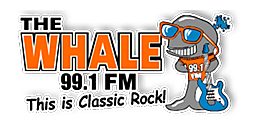
Dickey Betts Makes Peace With His Career
Dickey Betts is done with the music business ... or so he says.
His son Duane, who has followed in his father's footsteps as a guitarist, doesn't buy it, but the former Allman Brothers Band member feels his days onstage and in recording studios are a thing of the past.
"My career is over," Dickey Betts told Rolling Stone. In 2009, he turned down a 40th-anniversary reunion with the Allman Brothers Band, a group he co-founded in 1969 and was fired from in 2000 for his drinking. He last played with his own band three years ago. "It's a little bit of burnout, a little sour grapes, a little bit like a boxer who gives it up. It's pretty tough, to tell you the truth," he said. "Everyone wishes they could be young forever. But I feel like I did my work, and I'm not gonna do anything that's gonna top what I'm known for. So why don't you just stay home?"
Betts certainly can at this point. He's financially secure thanks to licensing, his cut of the band's merchandise and other investments, so retirement is a definite option. Even though he had written and sang on some of the band's most memorable songs -- like "Jessica," "Blue Sky" and "In Memory of Elizabeth Reed," as well as the band's only Top 10 hit, "Ramblin' Man" -- Betts thinks the Allmans could have made it even bigger. He said they were poised to take over as the world's premier jam band after the Grateful Dead disbanded. "After Jerry [Garcia] passed away, we were right in the position to move into that next-step thing," he noted. "But everyone was f---ing my band up. Gregg [Allman] wanted horns. And it was just so crazy."
Fellow singer-songwriter and guitarist Warren Haynes, who had first played in the Dickey Betts Band before Betts recruited him for the Allman Brothers in 1989, defended his friend's legacy. "Dickey wrote a lot of key songs and all those great instrumentals," he pointed out. "But because the band was called the Allman Brothers Band, it was confusing for people."
Betts may not have agreed with how things went down, but he's gracious and makes it clear in the new interview that he's not angry at his former bandmates (though he once referred to a later version of the group as a "tribute band"). "I don't want to say anything bad about Gregg," he said. "Those guys are on the other side now." (Founding drummer Butch Trucks, died in January; Allman passed away in May.) He even takes on some of the blame for the past bad blood, saying his move to audit the band's finances when he was let go was "a big f---in' mistake on my part."
Though much has been made about the reported feud between Betts and Allman, Betts said the two made their peace. "That whole idea about me and Gregg not liking each other was bulls---," he said. "I liked the old f---er!" The two even floated the idea of touring together a couple years ago, but Allman's deteriorating health prevented it. Allman did, however, leave a spot open on his final album, Southern Blood, for a solo by Betts, according to producer Don Was, but Allman never got around to asking him. "Gregg wanted to tie up loose ends," Was said. "[Dickey] was the last one."
The pair did speak several times in the weeks leading up to Allman's death, and Betts attended Allman's funeral. "Gregg could only whisper, but we got things worked out," Betts said. "We went through the court thing, so he thought I had it out for him. I had to let him know I didn't."
"I've had a great life and I don't have any complaints," Betts summed up. "I don't know what I would've done to make it different. There are lawsuits I probably could have dealt with better. But so what? You do the best with your amount of time."


